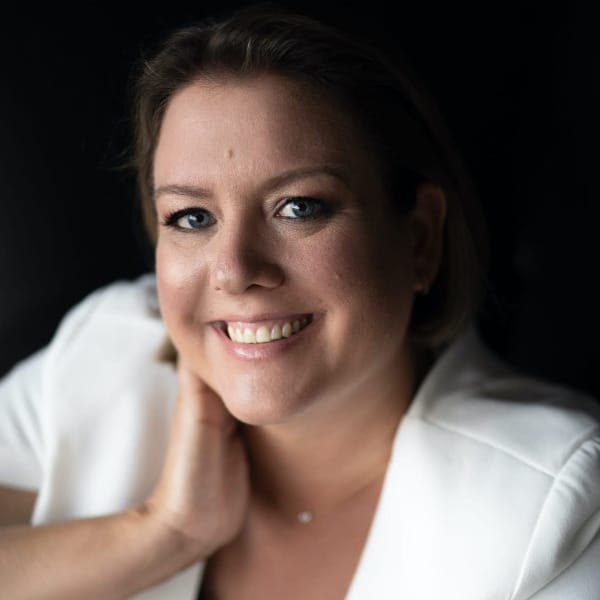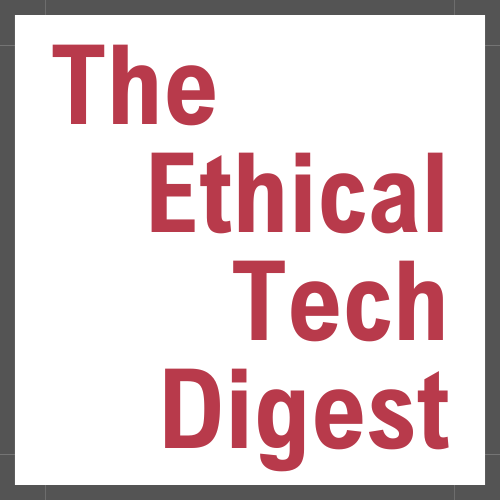🎥 Alumni Spotlight on Katie Harbath
Pioneering expert in digital politics.

Katie Harbath is the Chief Global Affairs Officer at Duco Experts. An expert in digital politics, Katie serves as a fellow and board member at numerous organizations, drawing from her experience as the former Director of Public Policy at Facebook (now Meta), where she led the company’s global elections strategy.
About Katie’s time at Facebook
Katie witnessed Facebook initially embracing, and later stepping back from political engagement. Nevertheless, she says social media companies must address politics. As a matter of fact, not dealing with politics is its own stance.
“You can run from politics, but you can’t hide.” - Katie
Katie makes a strong case for the positive effects each integrity worker in a tech company can have, regardless of the budget for Trust and Safety, or the amount of executive involvement. She stresses that although Facebook wrote some of the early playbooks, there are no fixed plays, as challenges continuously evolve, requiring fresh solutions.
The United States presidential elections and a global perspective
International elections differ from U.S. campaigns, operating with shorter election cycles, more centralization, and less funding and lobbying. The U.S. election is closely watched in other countries and this global knowledge informs Katie’s view of international politics.
Generative AI advancements present election risks similar to those seen in social media in 2008. She’s concerned about voice-based deep fakes affecting down-ballot United States races (state and local elections that don’t get as much attention), which can be determined by a mere handful of votes, but are not scrutinized by the media the way national races are. Voice fraud is harder to detect because many voters don’t know what their local candidates sound like. The challenge extends beyond technology to include election influencer payments and accountability, and the media’s coverage of deepfake threats, which may further increase distrust in online content.
About the Trust and Safety industry
The Trust and Safety industry is maturing beyond its Big Tech origins, as evidenced by the growth of the 2024 TrustCon, which is now fostering its own community of practice. TrustCon also revealed that more people are pursuing PhDs in Trust and Safety subjects, as well as working as consultants to serve specific needs and niches.
Early career advice
Early career professionals should explore the full spectrum of Trust and Safety roles across organizations, spanning government, think tanks, threat intelligence firms and consultancies.
Making hard trade-offs is central to the job, as is the ability to hear all sides of an issue simultaneously. The role demands comfort with both criticism and complexity!
Making decisions with imperfect information in an ambiguous environment will not suit everyone’s temperament. And those who feel particularly strongly about only one specific issue could instead explore advocacy work so that they can fully invest in seeing a specific policy change through.
Katie’s Trust and Safety mentors
Dave and Charlotte Willner wrote the early content moderation policies at Facebook and continue to shape the Trust and Safety industry. Charlotte now heads the Trust and Safety Professionals Association, and Dave explores the applications of AI for content moderation after his stint at OpenAI.
At St. John’s University, Kate Klonick's research continues to influence the governance of online speech on private platforms.
As a Non-Resident Fellow at Stanford University, Samidh Chakrabarti leads the Program on Governance of Emerging Technology at the Cyber Policy Center, where his work explores AI and content moderation. He also serves on the advisory board of the Integrity Institute.
Finally, Joel Kaplan, Katie’s former boss at Facebook, taught her about thinking through things using the Socratic method.
About Stanford’s Ethics, Technology and Public Policy for Practitioners course
Katie relishes her time at Stanford’s Ethics, Technology and Public Policy for Practitioners course, participating as a guest speaker (2019), a student (2021), a cohort leader (2022, 2023), and again as a guest speaker at the Practitioner Salon this week (2024). She says she takes away something unique at each turn and urges students to apply their learning in thinking through real-world use cases. She encourages students to put themselves in a decision-maker's shoes and ask themselves, “What would I do?”
Good advice, indeed.
Katie writes the Anchor Change newsletter and hosts the Impossible Tradeoffs podcast. She can be reached on LinkedIn.
Edited by Vance Ricks
